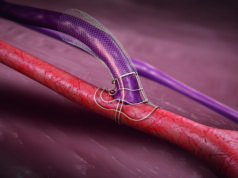 Dialyze Direct has welcomed the American Heart Association’s (AHA) recent scientific statement endorsing home dialysis therapies—including the more frequent haemodialysis (MFD) model of care—in its “Cardiovascular Effects of Home Dialysis Therapies” report. This report has been published in the journal Circulation.
Dialyze Direct has welcomed the American Heart Association’s (AHA) recent scientific statement endorsing home dialysis therapies—including the more frequent haemodialysis (MFD) model of care—in its “Cardiovascular Effects of Home Dialysis Therapies” report. This report has been published in the journal Circulation.
As per a Dialyze Direct press release, the report encapsulated many of the key research findings that informed the design of the company’s onsite, staff-assisted home dialysis model of care, which is designed to address the challenges of caring for medically complex patients residing in or undergoing rehabilitative/restorative therapies in a skilled nursing facility (SNF).
The report, authored by 12 cardiologists and nephrologists, concluded that ‘more physiologic’ dialysis like the MFD model—when compared with more traditional thrice-weekly, in-centre treatments—can lead to “significantly improved outcomes for patients suffering from end-stage kidney disease (ESKD)”, who are up to 20 times more likely to experience cardiovascular-related mortality than the general population.
As noted in the report, cardiovascular disease is the leading cause of death in patients with ESKD. MFD, particularly effective in managing fluid and its cardiovascular risk, powerfully addresses these issues, the release continues.
“The ability to provide patient-centric care utilising an MFD model provides dialysis patients the opportunity to live life to their optimal level,” said Alice Hellebrand, chief nursing officer and senior vice president of education for Dialyze Direct. “The need for innovative care is fundamental to the MFD treatment regimen, and our ability to provide MFD to this frail and largely unrecognised patient group brings professional satisfaction to the clinical staff and optimum outcomes for the patients we serve.”
Earlier this year, Dialyze Direct’s medical professionals validated a new application of MFD for the elderly and frail SNF population with ESKD. The results are published in Hemodialysis International and demonstrate a “marked reduction” in post-dialysis recovery time for these medically complex patients receiving MFD. Shorter post-dialysis recovery time can have a significant impact on patients by both improving the day-to-day quality of life, and permitting more engagement in rehabilitation and restorative therapies, according to Dialyze Direct.
“Patients receiving MFD in the nursing home setting experience longer life, fewer hospitalisations, gentler dialytic treatments and substantially faster post-dialysis recovery time,” added Allen Kaufman, chief medical officer at Dialyze Direct. “By eliminating transportation and improving clinical outcomes that include fewer medications and hospitalisations, the overall cost of providing care is substantially lower than the traditional dialysis care model. The time patients save with onsite, gentler treatment is far better spent on rehabilitation, restorative, family and social activities.”












